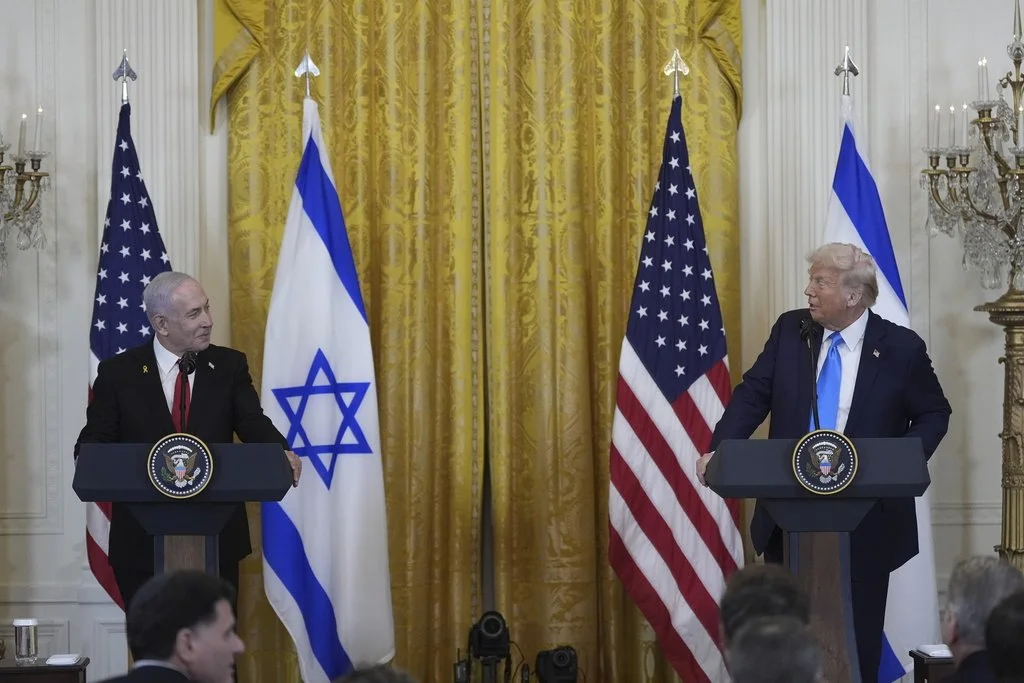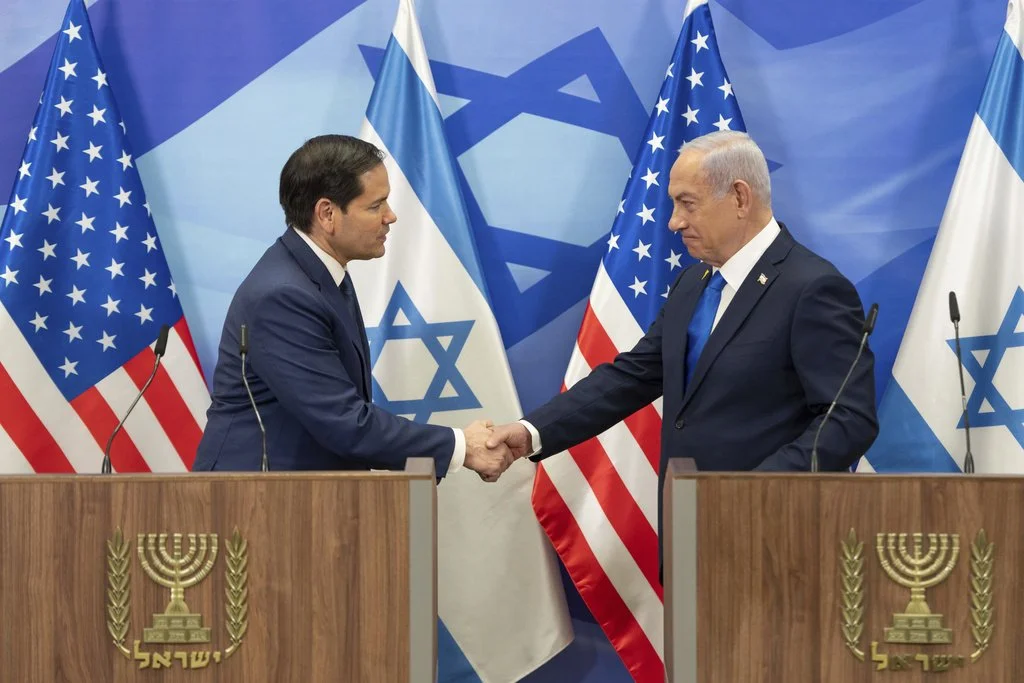Arab Leaders to Meet in Riyadh to Counter Trump’s Gaza Displacement Plan
Israeli Prime Minister Benjamin Netanyahu President Donald Trump speaking at a conference in the White House on Feb. 4, 2025 (AP Photo/Alex Brandon)
Leaders from Saudi Arabia, Jordan, Egypt and the United Arab Emirates will gather in Riyadh on Feb. 21 to address President Donald Trump’s plan to “clean out” the Gaza Strip. The hastily-organized summit, led by Saudi Arabia, follows international outcry over Trump’s proposal for the U.S. to take “long-term ownership” of Gaza and forcibly relocate its two million Palestinian inhabitants.
The president’s plan has sparked both excitement and anger across the Middle East. Israel’s Prime Minister, Benjamin Netanyahu, praised Trump’s “bold vision” for Gaza after a meeting with Secretary of State Marco Rubio in Jerusalem, stating he would work with the United States to make the resettlement of the Palestinians “a reality.”
Saudi Arabia’s crown prince, Mohammed bin Salman, publicly labeled Israel’s bombardment of Gaza “a genocide” in November. The kingdom has long insisted on the creation of a Palestinian state in the West Bank, the Gaza Strip and East Jerusalem – a step the Saudis deem necessary before diplomatic normalization with Israel. Trump’s comments have caused “outrage” in Riyadh, according to Saudi foreign policy expert Aziz Alghashian.
In Jordan and Egypt, countries that Trump suggested as locations for Palestinians to resettle in, the feeling is mutual. Both nations were quick to reject Trump’s plan.
“For 25 years, I have been saying no to displacement, no to resettlement, no to the alternative homeland,” King Abdullah of Jordan said, reaffirming his nation’s solidarity with the Palestinian people.
For Abdullah, the leader of a country with more than three million Palestinian residents and a long-time advocate of a two-state solution, cooperation with Trump’s plan could result in political backlash.
Beyond the Arab World, Trump’s vision for Gaza has been labeled a violation of international law. “Any forced displacement of people is tantamount to ethnic cleansing,” said United Nations Spokesperson Stéphane Dujarric.
On Feb. 21, Saudi Arabia, Jordan, Egypt and the UAE will look to adapt existing proposals on Gaza to counter Trump’s plan. At least four proposals have been drafted for the Gaza Strip, though the Egyptian plan has emerged as a frontrunner, an Arab government source told Reuters.
Egypt has proposed establishing a national Palestinian committee to govern Gaza without Hamas, incorporating international participation in the reconstruction efforts, while ensuring Palestinians are not displaced abroad. Representatives from across the Arab world will review the plan in Riyadh before presenting it at the Arab League Summit on Feb. 27.
Secretary of State Marco Rubio and Prime Minister of Israel Benjamin Netanyahu shake hands in Jerusalem on Feb. 16, 2025 (AP Photo/Ohad Zwigenberg,Pool)
In Jan. 2025, former Secretary of State Antony Blinken unveiled a comprehensive plan for post-war Gaza, aiming to facilitate stable governance, security and reconstruction efforts. Nonetheless, Blinken’s successor, Marco Rubio, insisted upon the new administration’s proposal.
“Right now the only plan – [Arab nations] don’t like it, but the only plan is the Trump plan,” Rubio argues.
In a move that fractured the united Arab front against the Trump administration’s proposal, Yousef Al-Otaiba, the Emirati ambassador to Washington, voiced his doubts about alternative proposals for Gaza on Feb. 14.
“I don't see an alternative to what's being proposed. I really don't. So if someone has one, we're happy to discuss it, we're happy to explore it, but it hasn't surfaced yet.”
As Arab leaders gather in Riyadh, the stakes remain high. With state sovereignty, regional stability and the fate of two million Palestinians on the line, the Feb. 21 summit may determine whether Trump’s vision for Gaza is realized – or whether the Arab world can devise an alternative path forward.


